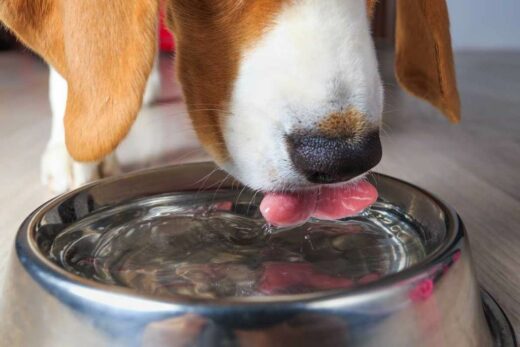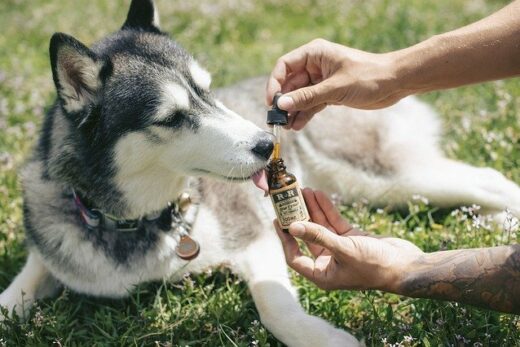By: Dr. Juli, DVM @itsDrJuli
Most dogs will experience bouts of diarrhea or loose stools during their lifetime. In fact, diarrhea is one of the most common reasons pet parents bring their pups for a veterinary visit. Besides the messy cleanup, it can be worrisome when your dog’s gastrointestinal tract (GI tract) is not functioning correctly. Naturally, dog owners want to help alleviate their dog’s diarrhea as quickly as possible. Sometimes, it may resolve by itself without any intervention or treatment. Dogs with diarrhea whose mood is otherwise unchanged may benefit from natural home remedies to help firm their stools and get them back on their regular poop schedule. However, always consult your veterinarian before introducing new foods, changing your dog’s diet, or giving them any over-the-counter supplements to aid in their recovery.
Common Causes of Dog Diarrhea
Diarrhea can be a symptom of numerous things, such as health issues, food allergies, diseases, toxic food ingestions, or other underlying GI problems. The list of diarrhea-causing conditions is extensive, but some of the more common causes of diarrhea in dogs include:
- Bacteria. Ingestion of garbage, improperly-cooked foods, or other contaminated items can lead to GI upset and infections from bacteria, including salmonella, E. Coli, clostridium, leptospirosis, or small intestinal bacterial overgrowth (SIBO). These infections generally require antibiotic treatment from your veterinarian.
- Viruses. Contagious dog viruses, like parvovirus, canine distemper, and adenovirus, can cause severe diarrhea. Young, partially-vaccinated, or unvaccinated dogs are most at risk for contracting these viruses.
- Intestinal parasites. Roundworms, hookworms, tapeworms, whipworms, giardia, and coccidia are common culprits for parasitic-induced diarrhea. Ensure your dog is receiving a veterinary-prescribed monthly parasite prevention medication.
- Metabolic disease. Some chronic health problems, like kidney disease, liver disease, and Addison’s (hypoadrenocorticism), can cause diarrhea. Bring your dog for a vet visit if they have chronic or recurring diarrhea, as it could be a clue of more severe health problems.
- Autoimmune disease. Like people, dogs can suffer from immune system diseases, like inflammatory bowel disease (IBD/IBS), which can cause chronic GI problems, including diarrhea.
- Stress. Anxiety, fear, or sudden changes in your dog’s routine or environment can cause diarrhea or stress colitis.
- Dietary indiscretion. Dogs may develop diarrhea after ingesting table scraps or other difficult-to-digest foods. Additionally, any sudden diet change or introducing of a new treat or dog food can cause an upset stomach. Pet toxic foods, like chocolate, can also cause diarrhea.

When to Take Your Dog to the Vet for Diarrhea
In some cases, mild dog diarrhea may not be a cause to rush to your veterinarian. However, it’s never a bad idea to consult with your DVM for any concern, regardless of how mild it may seem. Dogs with weak or compromised immune systems, including puppies, senior pets, or dogs with underlying health problems, should see a DVM as soon as possible when they are suffering from diarrhea. Additionally, bring your dog for an immediate veterinary examination if they are showing diarrhea with any of the following signs:





